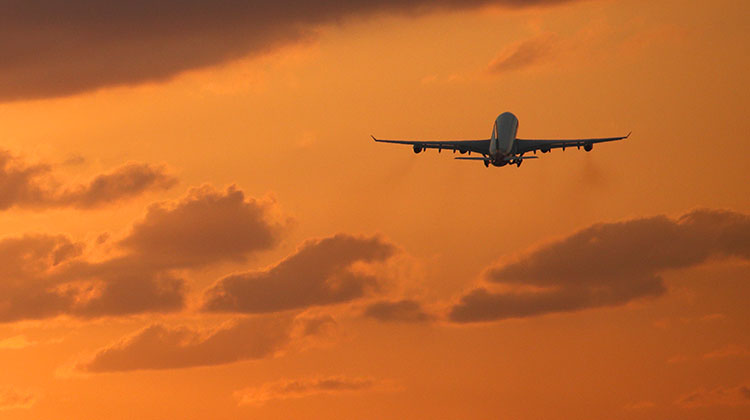
Passenger demand slowed in February amid global economic jitters and uncertainty over the United Kingdom’s withdrawal from the European Union, new figures show.
The International Air Transport Association (IATA) monthly traffic report for February showed demand, measured by revenue passenger kilometres (RPK), rose 5.3 per cent in February, compared with the prior corresponding period.
While it was the slowest monthly growth in more than a year, the IATA report said the result was broadly in line with the long-run average.
“Continuing trade tensions between the US and China, and unresolved uncertainty over Brexit are also weighing on the outlook for travel,” IATA director general and chief executive Alexandre de Juniac said in a statement.
“While overall economic confidence appears to be softening, aviation continues to deliver solid results, helping to sustain global commerce and the movement of people.”
Among the different regions, European airlines had the highest rate of RPK growth for international travel in February at 7.2 per cent, followed by the Asia Pacific carriers at 7.2 per cent.
At the other end of the scale, airlines in the Middle East collectively experienced an 0.8 per cent drop in RPKs in February. It was the only region to experience a drop in demand.
“Broadly speaking, passenger volumes have been moving sideways for the past 12-15 months now,” the IATA report said of the Middle East.
In terms of the seven domestic markets covered by the IATA report, Australia was the only country where RPKs were lower in February compared with a year ago after slipping 1.7 per cent in the month.
In an indication of the sluggish demand in the market, passenger load factors – an industry figure of how full flights are – fell 0.1 percentage points to 78 per cent, while capacity measured by available seat kilometres (ASK) was down 1.6 per cent.
“The annual rate of growth has now been negative for four consecutive months,” the IATA report said.
Qantas chief executive Alan Joyce said at the company’s 2018/19 first half results in February the domestic market remained well balanced.
Meanwhile, then Virgin Australia chief executive John Borghetti said at the airline’s 2018/19 first half results market conditions were uncertain given external events such as oil price volatility, the federal election and global events.
Borghetti ended his nine-year tenure as chief executive on March 25 2019, when Paul Scurrah started in the role.
Three countries reported an increase in demand in February – China led the way with an 11.4 per cent improvement in RPKs followed by the Russian Federation (10.1 per cent) and China (10.0 per cent).
“For India, this marks the 54th consecutive month of double-digit domestic RPK growth,” the IATA report said.
“A generally solid economic backdrop, combined with continued growth in the number of airport pairs have all contributed to this sustained growth performance.”




